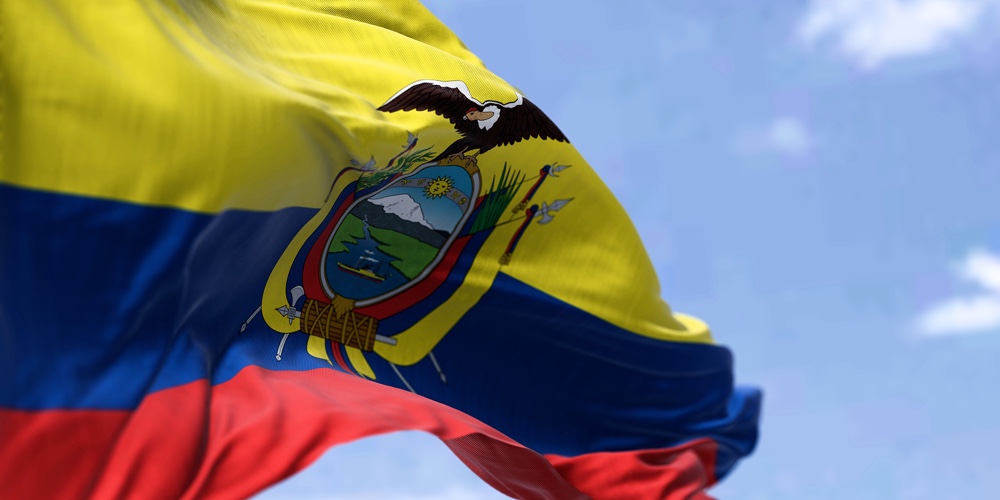Financial inclusion is both a global and domestic issue. Billions of people around the world lack access to basic financial services, the very tools that are needed to build wealth and break the poverty cycle. In the US, millions of people are unbanked, underbanked, have no credit or damaged credit and/or are subject to income volatility, all issues that impact not only what type of financial products are available to them, but the cost associated with that service. Credit unions are in the forefront of this fight, and there are learnings and solutions that can and should be shared across borders.
In commemoration of International Credit Union Day, Inclusiv is posting a series of Notes from the Field that highlight the cross-border implications of the financial inclusion work we do.
At the beginning of October, Inclusiv and WOCCU Latinoamérica facilitated a visit of representatives from Cooperativa Fernando Daquilema of Ecuador to Inclusiv members in the New York City area that are Juntos Avanzamos Designated.
Established in 2005 to provide access to Ecuador’s indigenous population, specifically the Puruwa nation, Cooperativa Daquilema has become one of the ten largest financial cooperatives in that country. Approaching half a billion in assets, Cooperativa Daquilema serves over 140,000 members through a network of 19 branches, 110 correspondent offices and 19 ATMs.
Cooperativa Daquilema has grown rapidly because it’s business model, which while based on the cooperative principles, is deeply rooted in the Puruwa nation’s traditional values: randi randi (reciprocity), ama shwa (not steal), ama llulla (not lie), and ama killa (not idle).
Approaching one million nationwide, Ecuadorian are the ninth largest Latin American group in the US. Roughly a third of them live in the NYC area, where they’re contributing to the local economy, starting businesses, and making communities more diverse and richer with their ancestral culture.
The visit provided an opportunity both for the local credit unions and the visiting delegation to learn and share as they have a similar commitment to financial inclusion and the empowerment of financially underserved communities and populations
Brooklyn Cooperative FCU, Lower East Side People’s FCU and Neighborhood Trust FCU have historically served the Hispanic and immigrant populations in New York City. More recently, USAlliance FCU has been increasingly focused on the Hispanic community and it’s even developed promising new technology such as Dora, a fully bilingual financial services platform. All these institutions are Juntos Avanzamos designated, which is given to credit unions that are intentionally, methodically, and strategically serving the Hispanic and immigrant communities in a manner that’s both responsible for the consumer and sustainable for the institution.
"This visit has been very enlightening to us,"says Aissatou Barry-Fall, President, and CEO of LESPFCU. "Realizing that we share similar challenges but also similar opportunities, makes you realize that there’s so much more we can do to connect with immigrants, particularly indigenous populations, which face even more barriers to access financial services."
"Our team was so excited to engage with our guests,"said Kris VanBeek, President, and CEO of USALLIANCE Financial. "It was interesting to hear about the many shared priorities between our organizations. It was validating to hear excitement and interest in Dora, as we are so proud of the service we have developed. Visits like this and level of exchange are really what validates the cooperative model internationally."
"It was interesting to learn how Daquilema has been able to grow sustainably since its onset. That growth rate is clearly the result of creating a loyal and satisfied member base," says Rafael Monge-Portaro, President and CEO of Neighborhood Trust. "We can learn so much from their experience."
"Cooperativa Fernando Daquilema is grateful for the warm welcome received and for the strong interest shown by this group of credit unions to work with our community. We look forward to continuing developing these relationships with the goal of formalizing more strategic cross border collaborations. We reiterate our commitment, disposition, and willingness to strengthen the cooperative system to benefit our members on both sides of the border," said CEO Pedro Khipo.
Among the many lessons learned from this visit: the understanding that technology, while imperative to reach consumers and deliver services, isn’t a replacement to the human touch, rather a complement; that migrant consumers have strong and enduring ties to their communities of origin, which provides an opportunity for credit unions on both sides of the border to collaborate; that Latino consumers continue to be underserved but indigenous populations are even more underserved and require more intentionality; and that financial inclusion represents both an opportunity but also a moral imperative. Without access to responsible financial tools, asset building, economic mobility and achieving financial security will always be an idea. Credit unions are the solution, and we can make a difference.
Si se puede!







